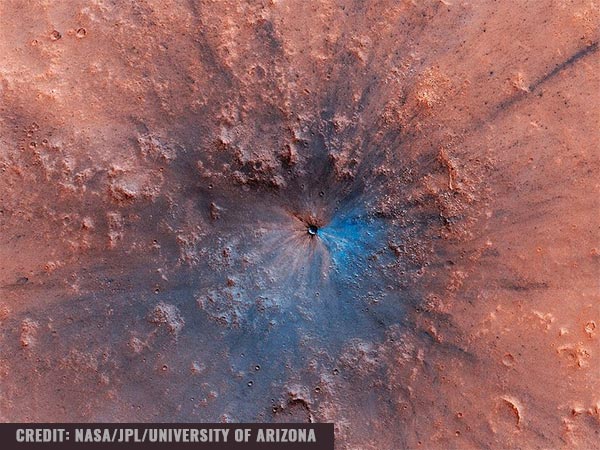Astronomers may have discovered multiple underground lakes on Mars

(Natural News) Mars may have multiple lakes hidden beneath ice, suggests a recent study published in the journal Nature Astronomy.
The discovery comes as a 2018 study previously found evidence of a large saltwater lake beneath the Martian south pole, a finding met with both excitement and skepticism. Since this assertion, an international team of researchers is supporting the existence of this lake, besides potentially identifying three smaller lakes around the same region.
“We have confirmed the existence of the big body of water independently and we also find the other patches,” said co-author Elena Pettinelli, a planetary scientist at the Third University of Rome, “so it means that it is not an isolated, casual discovery. It is a system.”
Lakes beneath Martian south pole
The team made their discovery using radar data from the European Space Agency (ESA) ’s Mars Express spacecraft, which has been orbiting the red planet since 2003. They used a broad dataset consisting of 134 observations taken between 2012 and 2019 – up from the mere 29 observations from the 2018 study, which faced a backlash from scientists who deemed that the research lacked sufficient data to support its bold finding.
The researchers used a radar instrument on Mars Express to probe the planet’s southern polar region. It would send out radio waves that bounced off layers of material on the planet’s surface and subsurface, similar to how scientists detected underground glacial lakes on Earth. The way the signal was reflected would indicate the material that’s present at a particular location — rock, ice or water, for instance.
The researchers detected areas of high reflectivity that suggested the presence of liquid water beneath more or less a mile of Martian ice. The lakes appeared to be spread out at an area of 18.5 million acres, which was roughly one-fifth the size of Germany. The largest lake was around 18.5 miles wide and was surrounded by three smaller lakes that were each a few miles wide. These lakes likely remained liquid due to their high salt content, said the researchers.
Can Martian life exist in these lakes?
The surface conditions on Mars, such as the low pressure that results from the planet’s lack of a substantial atmosphere, rendered the existence of liquid water impossible. But some scientists said that there could be water trapped under its surface, a holdover from a hypothetical time when the planet had seas and lakes billions of years ago.
“We now think [the lake system] has probably survived a very long time,” said Pettinelli. “We are thinking for millions of years for sure. It probably got progressively covered by ice when the climate changed.”
If such an underground reservoir existed, it could be a potential habitat for Martian life – on Earth, life was able to survive in subglacial lakes in such places as Antarctica.
However, there were complications. Scientists said that any underground lakes on Mars should be extremely salty for the water to remain liquid; temperatures around this area were estimated to be around -90 degrees. And though the heat from the interior of Mars could potentially reach higher up to where these lakes were, this alone wouldn’t be enough to melt ice into water. “From a thermal point of view it has to be salty,” said Pettinelli. (Related: If Mars has methane, does it mean there’s life on the red planet?.)
John Priscu, an environmental scientist at Montana State University, said that while lakes with salt content five times that of seawater could support life, lakes with 20 times that of seawater were virtually inhospitable. Even briny pools in Antarctica couldn’t host a robust marine environment, added Priscu, who was not part of the study. “They’re just pickled. And that might be the case [on Mars].”
For more studies supporting the presence of Martian lakes, visit Cosmic.news.
Sources include:


